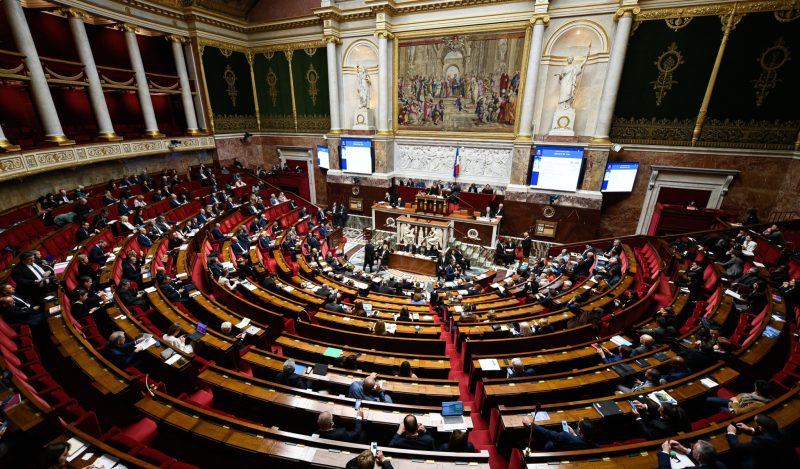So, what happened in the French legislative elections last weekend? How did Marine Le Pen’s National Rally, the big winner in the first round of elections the previous weekend, having obtained nearly one-third of all the votes cast, end up limping over the finish line in third place far behind the big winner of the second-round run-offs: the Left/Far-Left “New Popular Front” alliance of Jean-Luc Mélenchon?
The solution to this riddle is to be found in the tacit electoral pact between Mélenchon’s alliance and French President Emmanuel Macron’s ostensibly “centrist” alliance, which I discussed in my last article here, and the peculiarities of France’s system of voting.
For although the French system involves two rounds of voting, the second round does not simply consist of head-to-head runoffs between the two top vote-getters in each electoral district. Rather a minimum percentage threshold is used (12.5% of registered voters) to determine who qualifies for the second-round runoffs. Hence, there are very often “triangular” three-way runoffs and even sometimes four-way runoffs. This means that there can be vote-splitting between candidates or parties with ideological or programmatic affinities just as much in the second round as in the first.
It was precisely in order to avoid such vote-splitting – and thus secure the defeat of the National Rally candidates – that the Macron and Mélenchon alliances entered into their electoral pact, with 130 “New Popular Front” candidates and 81 “Macronist” candidates withdrawing from 2nd-round runoffs.
However, the major party with the greatest ideological and programmatic affinities with Le Pen’s National Rally, namely the mainstream conservative party “The Republicans,” refused to enter into a similar pact with the National Rally and likewise withdrew its less well-placed candidates. If it had, a large part of those candidates’ votes would have undoubtedly gone to National Rally candidates in the runoffs.
This surely would not have been anywhere near enough for the National Rally to obtain the absolute majority in the National Assembly that it would have needed to form a government. But it likely would have been enough to secure the National Rally a plurality in the National Assembly, making it the winner of the second round of the elections rather than the “surprise loser.”
In fact, just as in the first round, Le Pen’s National Rally did finish first in terms of the percentage of votes cast for its candidates or allied candidates. The National Rally and its allies obtained 37% of the votes cast: up 4% from the first round. Mélenchon’s “New Popular Front” finished a distant second with nearly 26% of the votes (-2%). Macron’s “Together” presidential alliance was third in terms of votes with 23% (+3%).
Nonetheless – thanks to the non-aggression pact between Macron and Mélenchon and the refusal of the Republicans to enter into an analogous pact with the National Rally – the distant second-place finisher, Mélenchon’s “Front,” ended up with the largest number of seats in the National Assembly: 182. The third-place finisher, Macron’s presidential alliance, obtained the second largest number of seats: “exceeding expectations” and obtaining 163 seats. And the National Rally and its allies, despite receiving the largest number of votes, only obtained the third most seats in the National Assembly: 143.
The Republicans got barely 5% of the votes (-5%). But this was just enough to block the National Rally from obtaining a plurality of seats in the National Assembly and to give that plurality instead to the “New Popular Front:” thus potentially opening the path to power to Jean-Luc Mélenchon and his rag-tag band of center-left has-beens, Communists, Greens, Islamists, Antifa, and other assorted radicals.
In the final analysis, the mainstream conservative “Republicans” made Le Pen the loser and Jean-Luc Mélenchon the winner.
An earlier version of this article was published on The Daily Sceptic here.
Republished from the author’s Substack
Join the conversation:


Published under a Creative Commons Attribution 4.0 International License
For reprints, please set the canonical link back to the original Brownstone Institute Article and Author.









